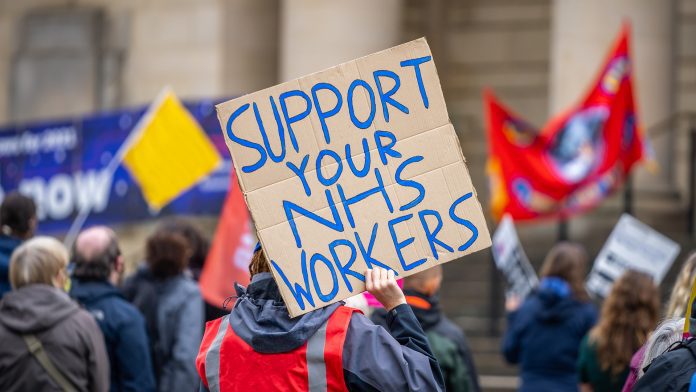
The National Health Service is bracing for one of its most challenging starts to the year as unprecedented NHS industrial action looms.
The impending NHS strikes are poised to disrupt almost all routine healthcare services, compelling consultants to step in as the NHS prioritises urgent and emergency cases.
NHS National Medical Director Professor Sir Stephen Powis explained: “This January could be one of the most difficult starts to the year the NHS has ever faced.
“Six consecutive days of industrial action comes at one of our busiest periods – the action will not only have an enormous impact on planned care but comes on top of a host of seasonal pressures such as COVID-19, flu, and staff absences due to sickness – all of which is impacting on how patients flow through hospitals.
When will the NHS industrial action take place?
Junior doctors are set to initiate a prolonged strike starting at 7 am on Wednesday, January 3, and extending until 7 am on Tuesday, January 9. This marks the lengthiest consecutive NHS industrial action.
The previous three-day strike by junior doctors, conducted just before Christmas, resulted in the postponement of thousands of appointments, exacerbating the healthcare backlog.
This NHS industrial action arrives amidst the winter season, where the NHS is already strained by various factors, including the surge in seasonal illnesses such as COVID-19 and the flu.
The aftermath of the Christmas and New Year holidays, characterised by increased social interactions, amplifies the risk of infections spreading.
Recent data paints a concerning picture, revealing a staggering rise in flu-related hospitalisations, with an average of 942 admissions per day last week—an escalation of nearly sixfold compared to the preceding week.
Moves to safeguard the NHS
Anticipating the heightened strain, the NHS has undertaken extensive preparatory measures earlier than ever before for the demanding winter period.
This proactive approach includes setting up hundreds of additional beds, increasing ambulance presence, and establishing 24/7 system control centres nationwide to manage the mounting pressure efficiently.
Despite the ongoing NHS strikes, England’s Chief Medical Officer urges individuals to seek necessary healthcare. Utilising the 111 online services is recommended as the primary point of contact, while 999 and A&E should be used in life-threatening emergencies.
Powis added: “Our colleagues across the health service are doing their very best for patients every day with extensive preparations in place, but there’s no doubt they are starting 2024 on the back foot.
“Not only will action impact next week, but it will continue to have a serious impact in the weeks after as we recover services and deal with additional demand.
“However, I cannot stress enough that people who need care must come forward as they usually would – using 999 and A&E in life-threatening emergencies and 111 online for everything else.”
The NHS emphasises that individuals can continue accessing GP services and local pharmacies in their usual manner, aiming to maintain continuity in essential healthcare provision amid the tumultuous period.

























